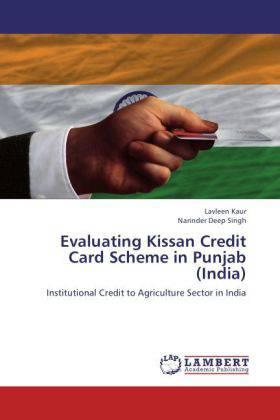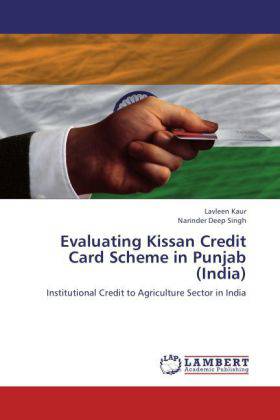
- Afhalen na 1 uur in een winkel met voorraad
- Gratis thuislevering in België vanaf € 30
- Ruim aanbod met 7 miljoen producten
- Afhalen na 1 uur in een winkel met voorraad
- Gratis thuislevering in België vanaf € 30
- Ruim aanbod met 7 miljoen producten
Evaluating Kissan Credit Card Scheme in Punjab (India)
Institutional Credit to Agriculture Sector in India
Lavleen Kaur, Narinder Deep Singh
Paperback | Engels
€ 71,45
+ 142 punten
Omschrijving
Lack of institutional credit has remained a major constraint in the development of agriculture sector, despite the significant strides achieved in terms of spread, network and outreach of rural institutional financial institutions since independence. Therefore, the Reserve Bank of India (RBI) introduced Kissan Credit Card Scheme in 1998-99, as a step towards facilitating the access to short-term credit by the borrowers from formal financial institutions. The basic objective was improving the rural credit delivery system as well as simplification of the procedures of farm credit. The growth in distribution of KCC s has been phenomenal i.e. 44 per cent per annum and around 84.6 million KCC s have been issued up to the end of 2008-09, by the banks throughout the country. Hence, evaluating the performance this scheme becomes important as it has number of beneficiaries and considerable financial outlay. Moreover, evaluation will also help in improving the efficiecy of this scheme and help in acheiving the objective of providing credit to needy farmers, possible.
Specificaties
Betrokkenen
- Auteur(s):
- Uitgeverij:
Inhoud
- Aantal bladzijden:
- 160
- Taal:
- Engels
Eigenschappen
- Productcode (EAN):
- 9783848498864
- Verschijningsdatum:
- 16/08/2012
- Uitvoering:
- Paperback
- Afmetingen:
- 152 mm x 229 mm
- Gewicht:
- 245 g

Alleen bij Standaard Boekhandel
+ 142 punten op je klantenkaart van Standaard Boekhandel
Beoordelingen
We publiceren alleen reviews die voldoen aan de voorwaarden voor reviews. Bekijk onze voorwaarden voor reviews.










